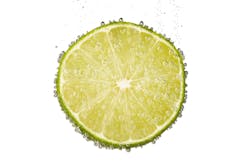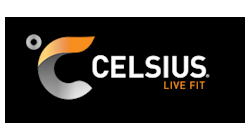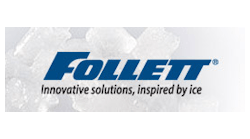Alternative beverage options are becoming more commonplace at the office. While coffee is a much-beloved staple, a focus on wellness is ushering in healthier drinks, sparkling water, hot tea and unusual flavors that spark joy for consumers. More personalized drinks may even be part of the future of office life.
Consumers look for healthier products
“With health and wellness taking a more prominent place in every facet of people’s lives, there has been a strong shift away from sugary beverages loaded with artificial ingredients,” said David Smaltz, senior director of sales, vending, at Celsius. “As healthcare gets more and more expensive as well as challenging to navigate, people of all demographics are doing what they can to be more aware of what they eat and drink.”
Smaltz said water has replaced carbonated beverages as the bestselling beverage as consumers are looking for products without sugar, artificial colors and artificial flavors that are non-GMO, kosher, vegetarian, vegan-friendly and have additional benefits like vitamins and protein.
“The cleaner the product the more appealing to today’s consumer,” Smaltz said. “With all that being said, if it doesn’t taste great, they don’t want it.”
He said that he sees these trends as crossing gender, age and geographic boundaries.
“It used to be that change was driven predominately by the influencers who lived on the East or West coast, but I see the same trend in the Mid-South, Southeast, Mid-West, Northwest, really everywhere,” Smaltz said.
Sparkling water leads the way
Lisa VanWyngarden, senior manager, business development and marketing at Waterlogic Commercial Products, LLC, and Mike Purcell, product marketing manager at Follett LLC, both said they have seen growth in the popularity of sparkling water.
“We’re seeing a surge of interest in sparkling water as a healthy alternative to soda,” said Purcell, whose company designs and manufactures equipment for ice and water dispensing.
VanWyngarden added that she has also seen the trend spread from predominately the East and West coasts to many areas of the country now.
“Seven years ago, we saw sparkling water mainly on the coasts and in the largest metropolitan areas, but I can personally vouch it has spread to small town Nebraska as well!” VanWyngarden said.
Though Follett is focused on manufacturing its products and less on pinpointing distribution popularity in terms of demographics and industries, Purcell also said it seems sparkling water has spread inland beyond its popularity along the coasts.
The uptick in sales of individual bottles of sparkling water has resulted in more sales of point-of-use sparkling water coolers as well. The coolers provide a more eco-friendly distribution of sparkling water, VanWyngarden said.
VanWyngarden attributes these trends to consumers opting for healthy choices for themselves and the environment.
“Consumers are more educated than ever due to water concerns in the news such as legionella outbreaks and the Flint lead crisis and they are expecting employers to provide safe drinking water,” said VanWyngarden. “In addition, the amount of plastics in our oceans has raised awareness about the impact single use plastic bottles have on the environment and businesses are increasingly switching to point-of-use coolers that workers can fill their reusable bottles from.”
Follett’s machines offer chewable nugget ice, Chewblets®, with still water and sparkling water as options, Purcell said. Quality ice machines, especially those that make nugget ice, have also enabled a lot of profitable beverages and driven consumer satisfaction and repeat business, he added.
“We do have an opinion that ice machines are becoming more popular in the workplace as companies try to provide more and better healthful amenities for their employees. Good in-house amenities make for happier employees and better retention,” said Purcell.
Tea sees traction
Kristin Overstreet, national account manager, foodservice and OCS — East at Twinings North America, said the tea company has noticed an increase in consumption of hot tea in regions with cooler climates and that there has been an increase in the number of consumers seeking to enjoy tea outside of the home, including at the office.
That consumer base stretches across a wide demographic base, and hot tea consumers desire a wide variety of flavors, she added. The company offers several distinct variety packs of different flavors, and some of the most popular flavors are English Breakfast, flavored greens and Peppermint.
Unusual flavors gaining popularity
Brandon Bohland, special markets manager at 5-Hour ENERGY®, said he has noticed that unusual flavors have been trending among food and beverage companies. He was personally surprised at the popularity of his company’s Cool Mint Lemonade flavor.
“Even just a few years ago, who would have wanted a cool mint lemonade flavor? But we chose it based on hot flavor trends. So far it’s been very popular, and people like it,” Bohland said.
He said his company has seen growth through each of its channels for office clients: vending, micro market and office coffee services. The 5-hour ENERGY’s popularity has expanded from its college-aged male market beginnings to include working age men and women. It now has about 91 percent market share in sales for 4-ounce or less energy beverage products, Bohland said.
Evolution of healthy drinks for the future
Smaltz believes the future of workplace beverages lies in the evolution of what is considered healthy.
“As people’s concern for health and wellness continues to evolve and change, the products they need to meet their needs or satisfy their desires may change as well,” he said. “Who would have thought even as little as five years ago that there would be a demand for beverages with CBD [cannabidiol] as an ingredient? It will be interesting to see where we are in another five years.”
He added beverages may also take on a more personalized function and ingredients may become more plant-based, just like some consumers’ diets have become. Those future ingredients for beverages may include functional botanicals, mushrooms and medium chain triglyceride oil.
VanWyngarden thinks the decline in soda and increase in flavored drinking water will continue in the future.
“The push for nutrition labeling to be more prominent on food and beverage packages will do even more to educate and influence consumers to make healthy choices,” VanWyngarden added.
Sustainability and globalization may also play a larger role in the future of the beverage industry.
“As the world gets smaller, hyper local beverage options from different parts of the world could take the U.S. by storm as people discover the features and benefits of products from distant lands,” Smaltz said.
These four beverage trends that companies have seen showcase a creative note in the marketplace. The drink options for extending hospitality to employees are numerous, and there may be even better ones to come.
Navigating marketing challenges
David Smaltz, senior director of sales, vending, at Celsius, said the biggest challenge in marketing to offices where employees have a wide variety of beverage desires is a lack of available cooler space.
“In most convenience stores you might see 15-20 doors of available shelf space. In the micro-market space, it can be as little as one door. Most manufacturers are putting together aggressive marketing plans to entice operators into placing your products in such limited space,” Smaltz said.
The space allotted for products, however, comes down to what sells, and manufacturers should let consumers lead the way by listening to their needs and desires, which is feedback that can be gained through social media, he said.
“Operators provide their clients with the items they want, it does no one any good to pack the cooler with cutting edge items that no one wants to drink,” said Smaltz.

Mary Stroka | Associate Editor
Mary joined the AM/VMW team in January 2019 as Associate Editor. Her love of animals extends to her snack habits, as she frequently chooses animal crackers when they are available. You can reach her via email at [email protected] or at (920) 234-8145.







